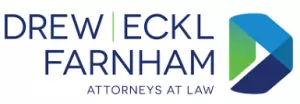Partner Matt Nanninga and Attorney Alex Essex, who is also a sports agent, were interviewed by the Daily Report to discuss the growing demand of Athletes' NIL deals. They provide insight into the growing complexity of legal issues surrounding college athletes' name, image, and likeness (NIL) deals.
Read the full article from the Daily Report below
Lawyers See Growing Demand in Athletes' NIL Deals, Even as Some Agreements Remain 'Pretty Small'
NIL deals could increase demand for multiple law firm practices, such as labor and employment, as the legalities surrounding the agreements evolve, noted Ron Gaither of Baker & Hostetler.
What You Need to Know
- Legal issues surrounding NIL likely will increase the need for sports lawyers to tap into multiple practice areas.
- A patchwork of state laws has sprung up amid Congress' failure to approve any laws governing NIL use nationwide.
- But until the evolving legal environment creates more demand, large firms likely will not create NIL-focused practices.
Legal issues surrounding college athletes' name, image and likeness (NIL) deals are becoming more complex, increasing the need for lawyers to tap into multiple practice areaswhen advising clients on the agreements, say leaders of law firm sports practices in Georgia.
While sports lawyers say they don't see the need just yet for a sole focus on NIL deals in their practice, the demand for expertise on NIL agreements is growing, as more athletes are seeking to take advantage of the opportunity—including at the high school level—and the NCAA and Congress add to the patchwork of state laws governing NIL.
Ron Gaither, who is vice chairman of Baker & Hostetler's sports and entertainment team, predicted that NIL deals could increase demand for firms in a few practice areas, such as labor and employment, as the legalities surrounding NIL agreements evolve.
Historically, the NCAA argued there was a public interest in college athletes remaining amateurs and not compensated in a commercial sense—despite the longtime use of athletes' images to grace the front of cereal boxes and college football-themed video games.
However, the U.S. Supreme Court determined in National Collegiate Athletic Association v. Alston in June 2021 that the NCAA violated antitrust laws by restricting compensation to athletes—leading to opportunities for student-athletes to profit from their NIL.
A patchwork of state laws subsequently sprang up amid Congress' failure to approve any laws governing NIL use nationwide.
Gaither said the NIL issue began simply as single athletes working directly with potential advertisers. However, over time, school boosters began pooling donations to form a variety of for-profit collectives to help a school's athletes connect with potential advertisers and earn money for their services.
The resulting tax implications of forming such collectives created the need for the services of a law firm's tax practice, Gaither said.
He also noted the National Labor Relations Board is considering whether student-athletes should be legally designated as employees of the schools they represent.
"Now I've got to make sure my labor and employment (practice) is up to date and following NIL and following NLRB and some of its decisions," Gaither said.
State-to-State Variation
This year, legislation has been proposed in Congress to address everything from revenue sharing to registration of sports agents and what college athletes are allowed to endorse. It was not clear whether any NIL-related bills faced chances of passage anytime soon.
In addition, as of July 1, a total of 30 states and the District of Columbia regulate the use of NIL for high school athletes, according to the Business of College Sports. Georgia is not one of the 30 but it could be added to that list. The Georgia High School Association (GHSA) Board of Trustees announced in April it will discuss NIL for the state's prep athletes this fall.
Georgia's law is similar to other states' laws that make it illegal for colleges to adopt or enforce rules that interfere with their athletes' rights to profit from their identities. However, Georgia's law, approved in 2021, also allows colleges and universities to require that up to 75% of an athlete's compensation be given to the institution.
Ricardo Jackman, chairman of Morris, Manning & Martin's new sports and entertainment practice and Washington, D.C.-based partner with the Georgia-founded firm, noted NIL laws still vary from state to state, with some regions being more tolerant of athletes advertising products like firearms than others, he said.
Overall, Jackman said he generally sees inquiries from potential clients—including both players and the companies that want to market them—for his counsel on NIL "ramp back up" at the end of a college semester.
Alex Essex, an associate with Drew Eckl Farnham, is also a licensed sports agent with the NFL Players' Association. He also is a former University of Georgia football player and said he represents several college athletes as their attorney in NIL deals.
He said the mix of NIL-related laws now on the books makes it difficult for athletes and their families to understand such issues as the effect on eligibility.
Matt Nanninga, who heads the sports law practice for Drew Eckl, said the group has seen a "number of inquiries" in recent months from athletes and their families about the possible use of NIL.
Nanninga said families typically have known little about how the use of NIL will affect players' amateur status or the law's effect on the athlete in the state where the athlete is playing, he said. "Every school seems to have different roles in how they handle it," he said.
Social Media Significance
Gaither, of Baker & Hostetler, said he saw increased demand for his counsel on NIL as the 2023 college football season approached this year. He said some of his clients include supermarket chains who may ask an athlete to make an appearance to sign autographs at a store. However, NCAA rules state the athlete cannot wear his or her uniform, he said.
The lawyers agreed that companies mostly want to hire athletes who have large followings on platforms like TikTok or Instagram.
"(Social media is) a huge part of it," Gaither said.
Jackman's clients include football players and some female athletes, as well. He noted some positions in college football, such as offensive lineman, are not "very friendly" for NIL representation because of being a relatively low-profile part of the action during a game.
Nanninga said Drew Eckl represents both athletes and potential advertisers. Some unspecified "large venues" have shown an interest in spending money to use athletes' NIL, he said.
He said NIL will be a major benefit to female college athletes in ways like increasing their visibility in sports which historically received much less media attention than men's sports.
A 'Challenging' Sole Focus
The challenge for many potential clients is if there is a demand for their NIL, Nanninga said. Few athletes currently have the earning potential of athletes like Louisiana State University gymnast Olivia Dunne—whose image has been shown on billboards in New York City's Times Square, he said.
"For every one of those, there are 100 others who don't command that demand," Nanninga said. "It depends on the player."
Indeed, leaders of sports practices said they saw numerous inquiries throughout the year but mostly did little work to advise athletes about NIL marketing as the college football season approached.Until the evolving legal environment creates more demand, lawyers won't need to have a sole focus on NIL deals, they said.
Many inquiries to the lawyers came from athletes and their families who believed they could market their NIL but either lacked large social media followings or played in a low-profile position on a team, they said.
"There's always going to be a demand for it, but I don't necessarily see that it's going to be the only practice that a person does," said Jackman, of Morris Manning.
Nanninga, of Drew Eckl Farnham, noted that many NIL deals involve events like autograph signings at a local retail store. "To have a practice on NIL would be challenging because, frankly, some of those deals are pretty small," he said.
The content of this article is intended to provide a general guide to the subject matter. Specialist advice should be sought about your specific circumstances.



